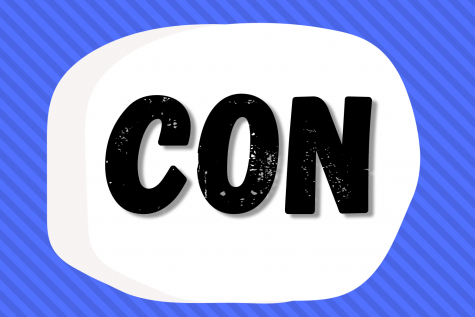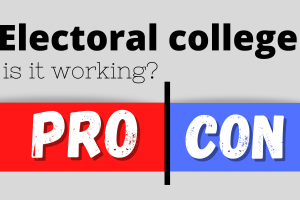The electoral college, an outdated way to elect our presidents
October 8, 2020
The electoral college, our current practice to elect presidents, is at the head of many debates. Some believe it represents voters and, more importantly, smaller populated states, but others think it does the opposite, as the popular vote does not always line up with our elected president.
I strongly believe the electoral college should be heavily reviewed for multiple different reasons based on the overarching issues I think it has on representing citizens’ decisions, not just high-up government officials. I believe the popular vote does not determine the president as it is the elector’s choice and the issue with apportioned votes, which sometimes leads to gerrymandering.
To give a summary of the electoral college, it’s a system where a certain number of state-selected electors, proportioned to the number of people, vote for president instead of the people. However, the popular vote does play into the electoral college as it’s implied that all electors of the state will vote to whoever receives the popular votes.
Conversely, this leads to my biggest problem with the electoral college: the electors’ ability to vote against the popular vote, a term called a faithless elector. Under the Constitution, electors are not bonded within the law to vote with the popular vote. Without the electors properly representing the approval of one popular candidate, the electoral college allows electors to place their beliefs over the public. For example, in the 2016 election there was 7 faithless electors who against their state’s beliefs.
But, proponents of the electoral college may say that the Supreme Court put sufficient limitations on voters by ruling in 2020 that states have the right to enforce voters to stick with their popular. This legislation is a step in the right direction towards fixing this problem, but I think Congress should act further to make sure states do make policies to prevent against faithless voters.
Another critical point about popular vote is that in circumstances where the electors follow the popular vote of their state, as a country in total, the sheer amount of people voting one candidate can amount to more than the other, yet they can still lose the election. The possibility for the candidate to win the popular vote but not become president is because apportioned votes in the electoral college. To represent smaller states, the Constitution makes congressional districts based on the state’s population, having each one receives at least one voter, and then an additional two.
While I understand wanting to represent each state fairly, whether small or large, if one candidate is in most of our whole country, they describe what America wants. But the electoral college represents the less populous states more than they should, because of the extra two voters each state receives gives way to the favored candidate not being elected.
Overall, though the electoral college has a variety of problems, it can be looked over and may be altered to fit the everchanging climate of American politics better and suit our citizens and opinions better. The electoral college precedes our government’s roots, a completely different time than we live in now.



